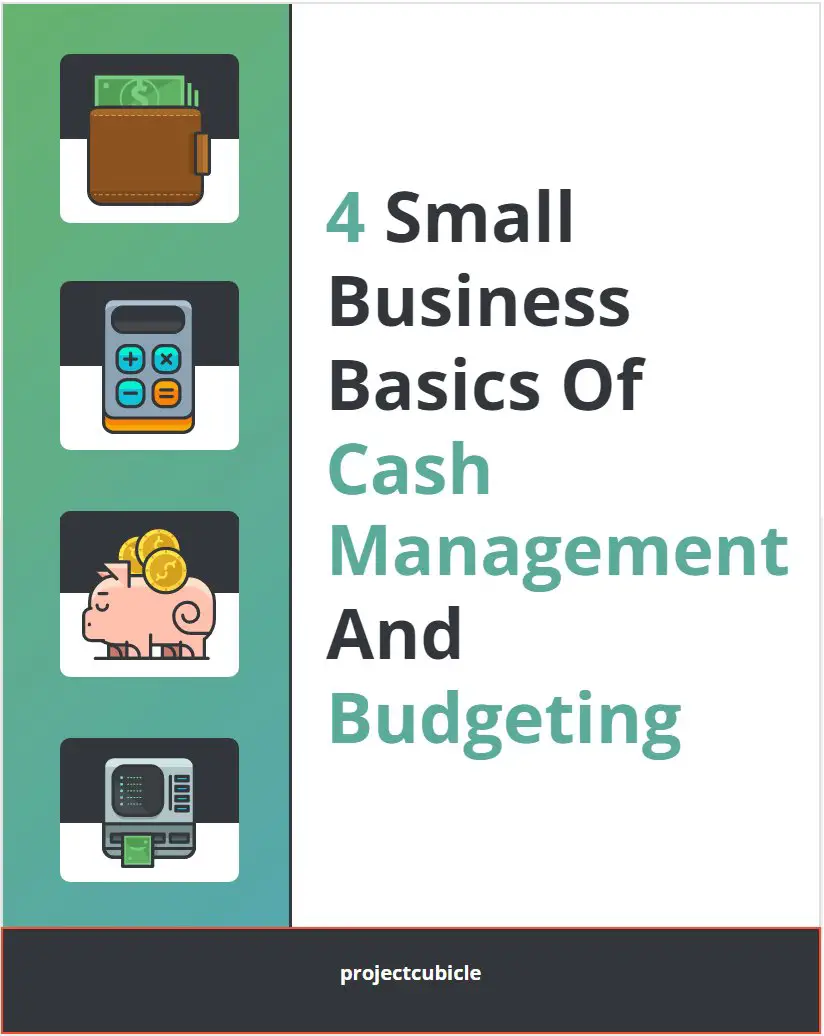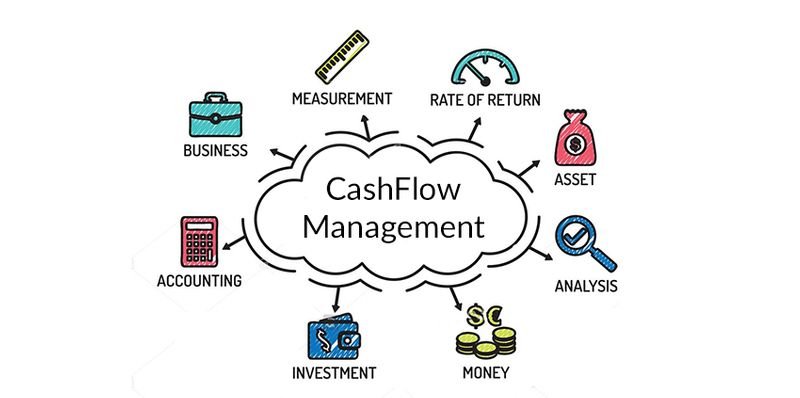Are you struggling to manage your small business budget effectively? Don’t worry! We’ve got you covered with some valuable tips for managing a small business budget. In this article, we will discuss practical strategies that will help you optimize your financial resources and ensure the growth and success of your business. Whether you’re a seasoned entrepreneur or just starting out, these tips will enable you to make informed financial decisions, allocate your funds wisely, and ultimately achieve your business goals. So, let’s dive right in and learn how to efficiently manage your small business budget.
Tips for Managing a Small Business Budget
Running a small business requires careful financial management, and one of the key aspects of this is effectively managing your budget. Whether you’re just starting out or looking for ways to optimize your existing budget, these tips will help you make the most of your financial resources. From cutting unnecessary expenses to maximizing revenue opportunities, read on to discover valuable insights on managing your small business budget.
1. Track Your Expenses
Tracking your expenses is the first step towards managing your small business budget effectively. By keeping a close eye on your business expenditures, you can identify areas where you can cut costs and allocate your resources more efficiently. Here are some tips for effective expense tracking:
- Maintain organized records: Use accounting software or spreadsheets to keep track of all your expenses. Categorize them into different expense types for better analysis.
- Conduct regular audits: Review your expense records periodically to identify any unnecessary or excessive spending. Look for opportunities to negotiate better deals with vendors or explore alternative suppliers.
- Implement expense policies: Clearly define and communicate expense policies to your employees. This helps set expectations and avoid overspending on non-essential items.
2. Create a Realistic Budget
A well-planned budget serves as a roadmap for your business’s financial journey. It helps you make informed decisions and ensures that you allocate your resources in the most effective way. Here are some steps to create a realistic budget for your small business:
- Analyze historical data: Review your past financial statements to identify spending patterns and seasonal variations. This will give you insights into your business’s financial trends and help you plan accordingly.
- Set attainable goals: Define clear financial goals for your business. Break them down into smaller milestones and incorporate them into your budget for better clarity.
- Consider both fixed and variable costs: Include both fixed expenses (rent, utilities, salaries) and variable costs (raw materials, marketing expenses) in your budget. Be sure to account for any anticipated changes in costs.
- Allocate funds for contingencies: Set aside a portion of your budget for unforeseen expenses or emergencies. This will provide a safety net and prevent your budget from getting derailed in case of unexpected events.
3. Negotiate with Suppliers
Successful budget management often involves finding ways to reduce expenses without compromising on the quality of goods or services you receive. Negotiating with suppliers can help you secure better deals and lower your costs. Here are some tips for effective supplier negotiations:
- Do your research: Research alternative suppliers and gather information on their pricing and terms. This positions you as an informed buyer during negotiations.
- Consolidate your purchases: If possible, consolidate your orders with a single supplier. This can help you negotiate bulk discounts or favorable pricing terms.
- Build long-term relationships: Nurture relationships with your regular suppliers. Building trust and loyalty can lead to better deals and preferential treatment.
- Explore vendor competition: Don’t be afraid to explore other suppliers even if you have established relationships. Competition can lead to better pricing and favorable contract terms.
4. Embrace Cost-Saving Measures
Finding ways to reduce costs and increase efficiency is crucial for managing a small business budget. Here are some cost-saving measures you can implement:
- Energy conservation: Reduce your utility bills by implementing energy-saving measures such as LED lighting, efficient heating and cooling systems, and proper insulation.
- Remote work: Consider allowing employees to work remotely, reducing the need for office space and associated costs. This also opens up opportunities to hire talent from different locations.
- Go paperless: Embrace digital solutions and minimize paper usage. This not only reduces costs related to printing and storage but also helps contribute to environmental sustainability.
- Outsource non-core activities: Instead of hiring full-time employees for non-core activities, consider outsourcing tasks such as accounting, IT support, or marketing. This can provide cost savings and access to specialized expertise.
5. Monitor Cash Flow Closely
Managing your cash flow effectively is crucial for the financial stability of your small business. Here are some tips to help you maintain a healthy cash flow:
- Invoice promptly: Send out invoices as soon as a service or product is delivered. Set up clear payment terms and follow up promptly on overdue payments.
- Offer incentives for early payments: Encourage your customers to pay early by offering discounts or other incentives. This helps improve your cash flow and reduces the risk of bad debts.
- Manage inventory efficiently: Keep track of your inventory levels to avoid overstocking or stockouts. Excess inventory ties up your cash, while stockouts can result in lost sales.
- Monitor accounts payable: Stay on top of your payables and take advantage of vendor payment terms. Paying on time helps maintain good relationships with suppliers and may provide opportunities for early payment discounts.
6. Prioritize Revenue-Generating Activities
While it’s important to cut costs, it’s equally important to focus on revenue generation to sustain and grow your small business. Here are some strategies to prioritize revenue-generating activities:
- Identify high-margin products or services: Analyze your product or service offerings and identify those with higher profit margins. Allocate resources and marketing efforts towards promoting these offerings.
- Upsell and cross-sell: Encourage customers to upgrade their purchases or consider complementary products or services. This increases the average transaction value and boosts revenue.
- Enhance customer experience: Provide exceptional customer service and prioritize customer satisfaction. Satisfied customers are more likely to become repeat customers and recommend your business to others.
- Explore new markets or customer segments: Identify potential new markets or customer segments that align with your business offerings. This can open up new revenue streams and diversify your customer base.
7. Regularly Review and Adjust Your Budget
Managing a small business budget is an ongoing process that requires regular monitoring and adjustments. Here are some tips to help you review and adjust your budget effectively:
- Set regular budget review intervals: Schedule periodic reviews of your budget to assess its effectiveness and make necessary adjustments. This could be monthly, quarterly, or annually, depending on your business needs.
- Compare actual vs. budgeted figures: Analyze your actual financial results against your budgeted figures. Identify any significant variances and investigate the underlying causes.
- Seek input from stakeholders: Involve key stakeholders, such as your accountant or financial advisor, in the budget review process. Their expertise can provide valuable insights and suggestions for improvement.
- Be flexible: Be open to adjusting your budget based on changing market conditions, business needs, or unexpected events. Flexibility is key to adapting to evolving circumstances.
By implementing these tips for managing a small business budget, you can gain better control over your finances and pave the way for long-term success. Remember, effective budget management requires continuous evaluation, adaptability, and a focus on both cost reduction and revenue optimization.
Small Business Budgeting Simplified: How to Create a Budget for Your Small Business
Frequently Asked Questions
Frequently Asked Questions (FAQs)
1. How can I effectively manage my small business budget?
There are several effective strategies you can use to manage your small business budget:
- Create a detailed budget plan outlining your income and expenses.
- Regularly track and review your financial statements.
- Identify and prioritize your business needs to allocate funds accordingly.
- Look for cost-saving opportunities and negotiate better deals with suppliers.
- Consider outsourcing non-core business functions to reduce costs.
- Reassess your budget periodically and make necessary adjustments.
2. How can I reduce unnecessary expenses in my small business?
To reduce unnecessary expenses, consider the following:
- Review your expenses regularly to identify non-essential items.
- Consolidate your vendors to negotiate better prices.
- Implement energy-saving measures to reduce utility costs.
- Consider adopting cost-effective technologies and software.
- Encourage your employees to suggest cost-saving ideas.
3. What are some effective ways to increase revenue for my small business?
Here are a few effective ways to increase revenue:
- Identify new target markets and expand your customer base.
- Introduce new products or services that complement your existing offerings.
- Implement effective marketing strategies to attract more customers.
- Create loyalty programs to encourage repeat business.
- Explore partnerships or collaborations to reach a wider audience.
4. How can I effectively track cash flow in my small business?
To effectively track cash flow, you can:
- Monitor your accounts receivable and payable regularly.
- Keep detailed records of all transactions.
- Use accounting software to automate cash flow tracking.
- Prepare and review cash flow statements on a regular basis.
- Forecast your future cash flow based on historical data.
5. What is the importance of budgeting in small businesses?
Budgeting is crucial for small businesses because it helps:
- Control expenses and avoid overspending.
- Plan and allocate resources effectively.
- Identify potential financial challenges and address them proactively.
- Make informed financial decisions based on accurate data.
- Track the progress and performance of your business.
6. How can I deal with unexpected financial challenges in my small business?
To effectively handle unexpected financial challenges, consider these steps:
- Review your budget and identify areas to cut costs temporarily.
- Explore alternative sources of financing, such as loans or lines of credit.
- Consider renegotiating payment terms with suppliers or creditors.
- Look for opportunities to increase revenue or attract new customers.
- Consult with a financial advisor for guidance and support.
7. Should I separate personal and business finances when managing a small business budget?
Yes, it is crucial to separate personal and business finances. By keeping them separate, you:
- Maintain accurate records for tax purposes.
- Facilitate financial analysis and decision-making.
- Protect your personal assets in case of business-related liabilities.
- Ensure transparency and credibility in financial reporting.
8. How often should I review and update my small business budget?
It is recommended to review and update your small business budget on a regular basis. Ideally, you should review it monthly or at least quarterly. Updating your budget allows you to account for any changes in your business environment, goals, or financial circumstances, ensuring it remains accurate and effective.
Final Thoughts
In conclusion, managing a small business budget requires careful planning and strategic decision-making. By following these tips for managing a small business budget, entrepreneurs can ensure financial stability and growth. Firstly, tracking expenses and identifying cost-saving opportunities is essential. Secondly, regularly reviewing and updating the budget to reflect changing circumstances can help maintain financial control. Additionally, negotiating contracts and seeking out competitive pricing can lead to significant savings. Lastly, prioritizing investments that generate a positive return and exploring alternative funding options can optimize budget allocation. By implementing these strategies, small business owners can effectively manage their budget and achieve long-term success.



